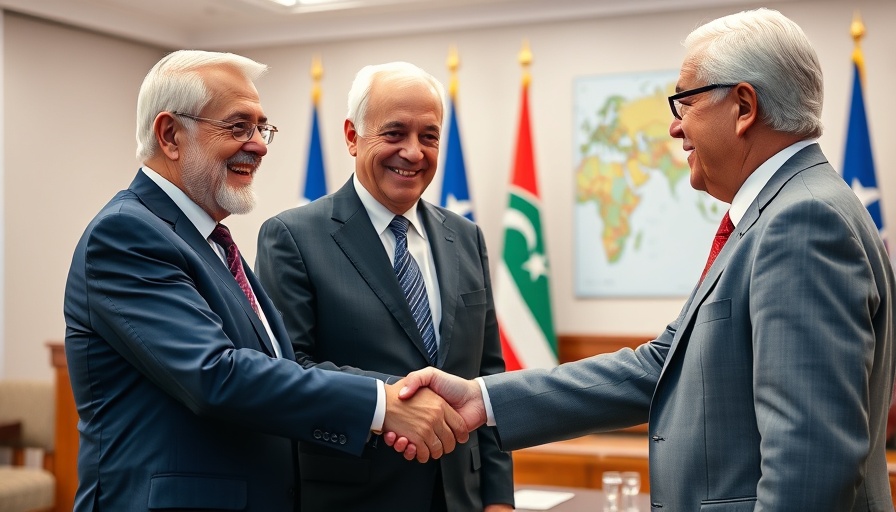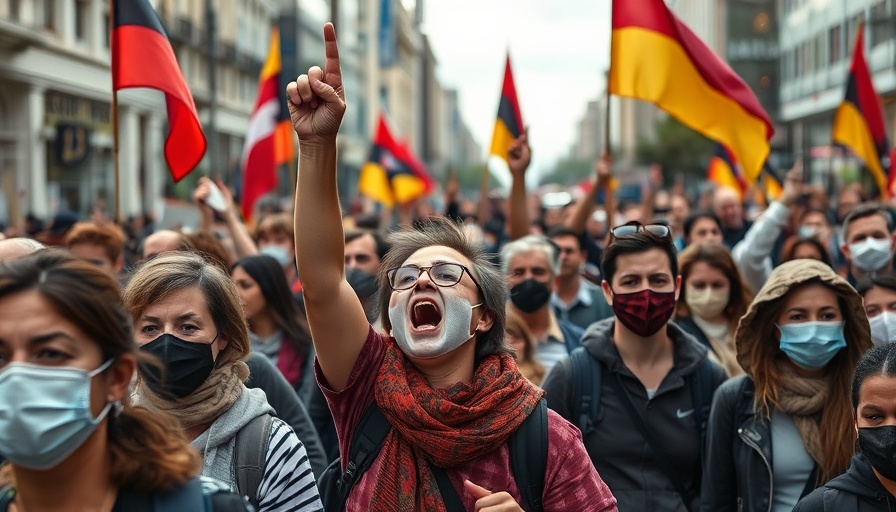
Political Turmoil Ahead of Nigeria's 2027 Elections
Nigeria’s political landscape is heating up as opposition parties unite against the ruling All Progressives Congress (APC), setting the stage for a fierce showdown in the upcoming 2027 general elections. This recent consolidation within the opposition, particularly through the newly formed African Democratic Congress (ADC), reflects a broader discontent with the current administration's leadership under President Bola Ahmed Tinubu, casting shadows over prospects for the ruling party.
In 'Key Political Developments in Nigeria: Government Faces Growing Opposition', the discussion dives into the complexities surrounding Nigeria's political maneuvering, prompting us to analyze the ramifications ahead of the 2027 elections.
Defections and Alliances: A New Opposition Front?
The recent assembly of opposition figures into the ADC have shifted political dynamics. Previously, it seemed that the APC was on a one-way street to victory, bolstered by defections from rival parties and a perceived lack of viable alternatives for voters. However, this new coalition, which includes notable political figures such as former governors and senators, challenges that narrative by positioning itself as a formidable challenger. The sheer scale of this coalition indicates significant fractures within the political establishment and serves as a reminder that opposition can rally when fueled by shared grievances against a common adversary.
Economic Concerns Amid Political Strife
Compounded by the political crisis is Nigeria’s ongoing economic struggle. Reports highlight that 20 states are vulnerable to severe flooding despite a colossal 620 billion naira ecological intervention fund, raising questions about fiscal management and the government's priorities. The troubling reality of delayed salaries for educators, coupled with strike actions by the Academic Staff Union of Universities (ASU), underscores the disastrous connection between governance and its impact on everyday life for citizens. Such economic discontent might play a pivotal role in shaping voter sentiment as elections approach.
The Dynamics of Social Media in Contemporary Politics
Furthermore, recent developments indicate that the U.S. embassy in Nigeria is intensifying scrutiny by screening the social media accounts of Nigerian students. This move has significant repercussions for perceptions of civil liberties and individual expression among Nigerians, particularly in a climate where political dissent through social media is becoming increasingly monitored. As external factors like international policies intersect with domestic political realities, Nigerian citizens must remain vigilant about their online presence.
Future Trends: A Nation at a Crossroads
Looking ahead, the political trajectory of Nigeria appears uncertain. The APC's handling of internal dissent suggests a party on the defensive, likely endeavoring to maintain its grip on power amid rising opposition pressures and shortcomings in governance. As the opposition solidifies, the election landscape indicates that voters are eager for change—whether in response to economic difficulties or simply a desire for a new direction. The political engagement from citizens, particularly youth, may significantly influence the election outcomes.
Conclusion: Preparing for a Pivotal Election Year
As Nigeria edges closer to the 2027 elections, understanding the shifting winds of political power, economic challenges, and the role of digital platforms in shaping public opinion is critical. Each of these elements plays a crucial role in defining the country's democratic landscape. Citizens must remain informed and actively participate in the political discourse to ensure their voices are heard in this critical juncture.
 Add Row
Add Row  Add
Add 


Write A Comment